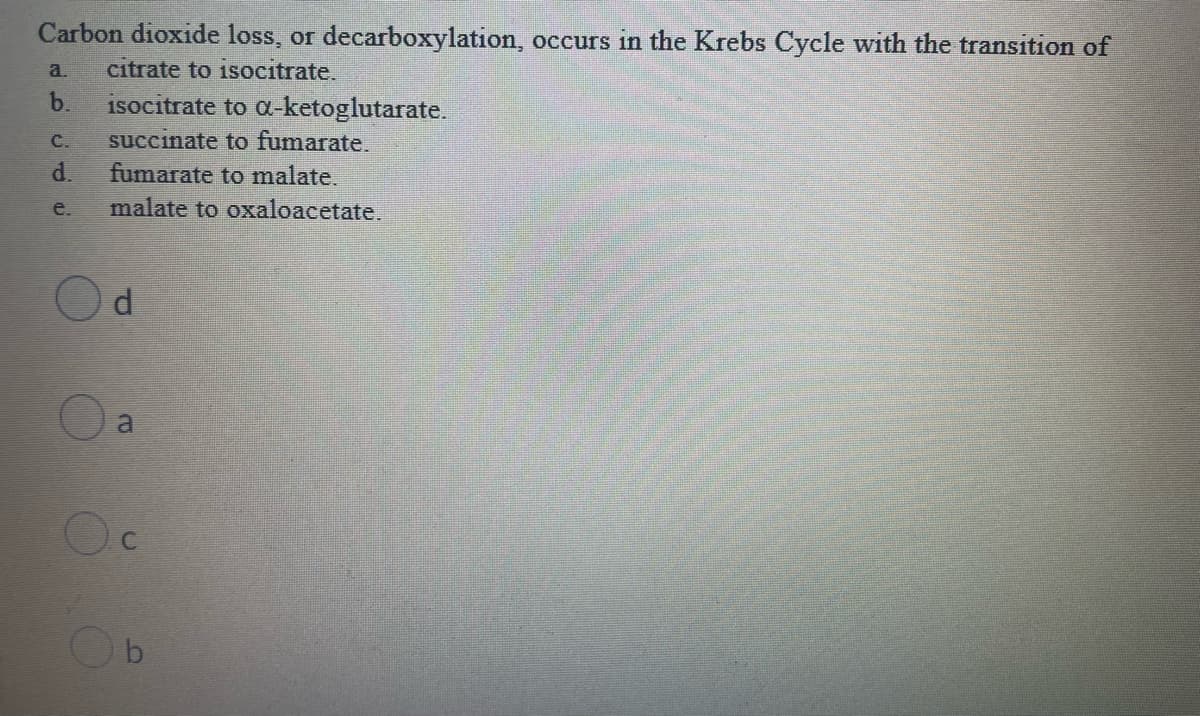Carbon dioxide loss, or decarboxylation, occurs in the Krebs Cycle with the transition of citrate to isocitrate. a. b. isocitrate to a-ketoglutarate. succinate to fumarate. d. C. fumarate to malate. e. malate to oxaloacetate. d. Ob
Carbon dioxide loss, or decarboxylation, occurs in the Krebs Cycle with the transition of citrate to isocitrate. a. b. isocitrate to a-ketoglutarate. succinate to fumarate. d. C. fumarate to malate. e. malate to oxaloacetate. d. Ob
Biomedical Instrumentation Systems
1st Edition
ISBN:9781133478294
Author:Chatterjee
Publisher:Chatterjee
Chapter11: Instrumentation In Respiration
Section: Chapter Questions
Problem 2Q
Related questions
Question

Transcribed Image Text:Carbon dioxide loss, or decarboxylation, occurs in the Krebs Cycle with the transition of
a.
citrate to isocitrate.
b.
isocitrate to a-ketoglutarate.
succinate to fumarate.
d.
C.
fumarate to malate.
malate to oxaloacetate.
e.
a
bi
Expert Solution
This question has been solved!
Explore an expertly crafted, step-by-step solution for a thorough understanding of key concepts.
This is a popular solution!
Trending now
This is a popular solution!
Step by step
Solved in 3 steps

Recommended textbooks for you


Basic Clinical Lab Competencies for Respiratory C…
Nursing
ISBN:
9781285244662
Author:
White
Publisher:
Cengage



Basic Clinical Lab Competencies for Respiratory C…
Nursing
ISBN:
9781285244662
Author:
White
Publisher:
Cengage


Human Biology (MindTap Course List)
Biology
ISBN:
9781305112100
Author:
Cecie Starr, Beverly McMillan
Publisher:
Cengage Learning